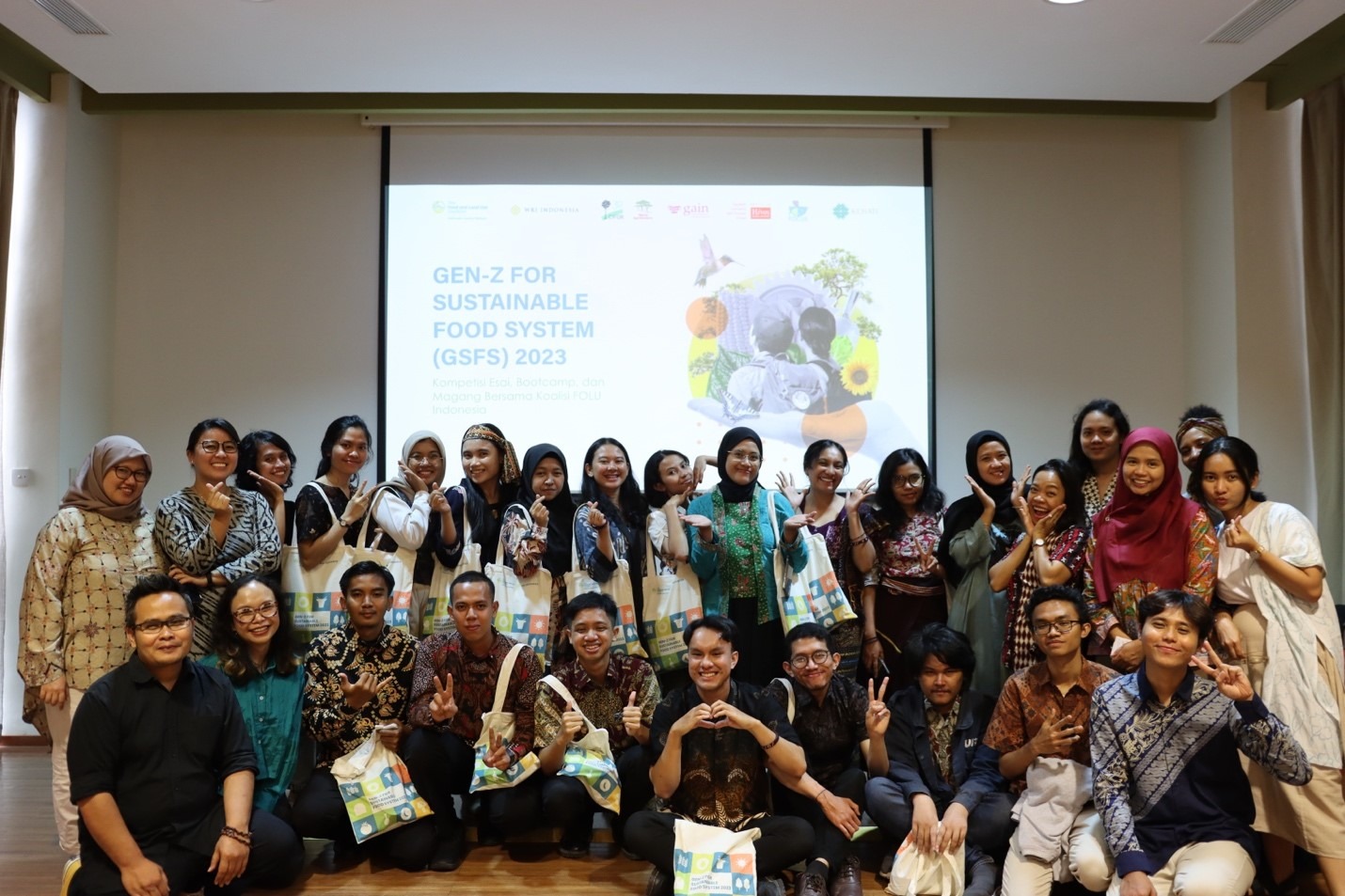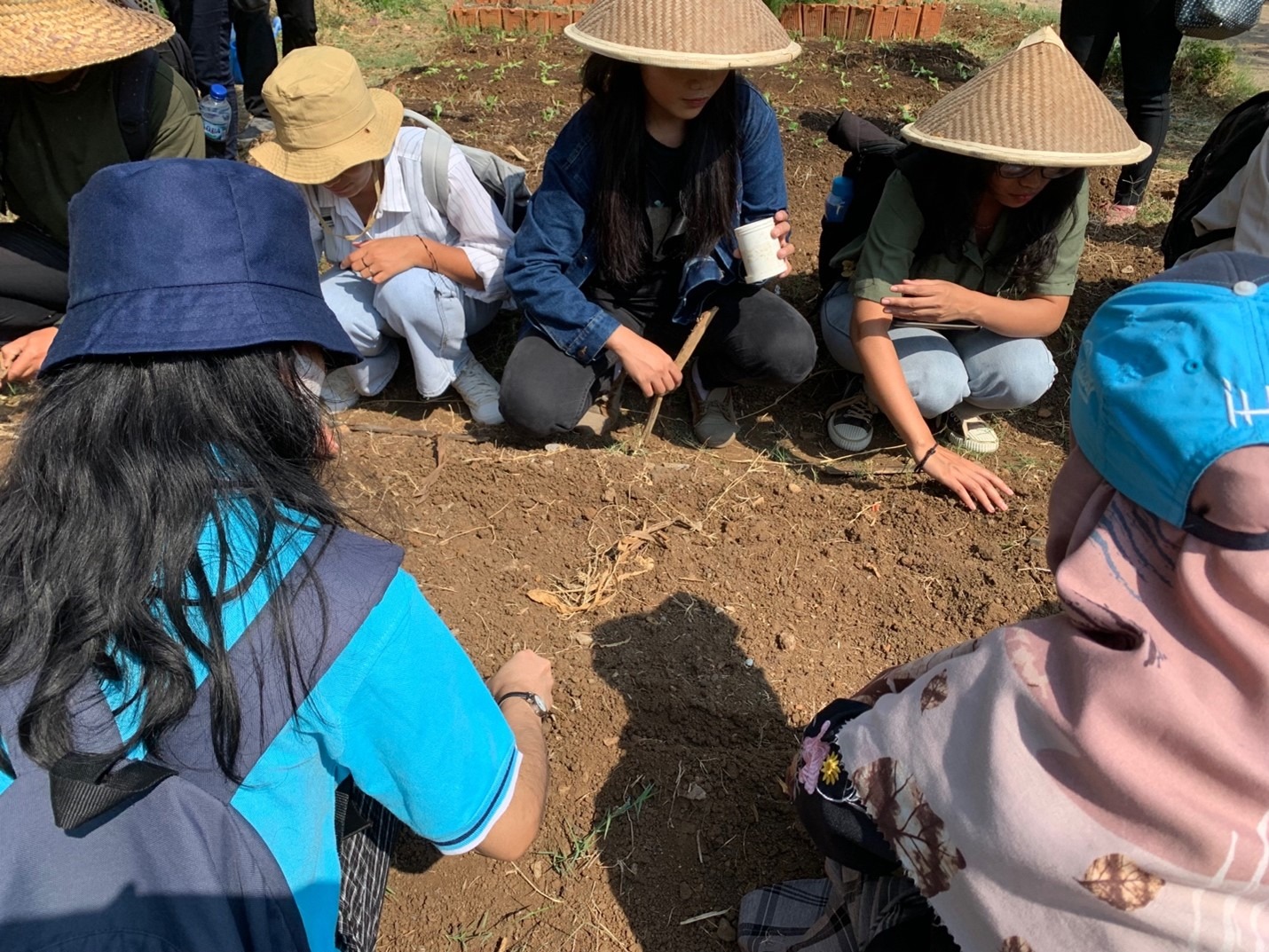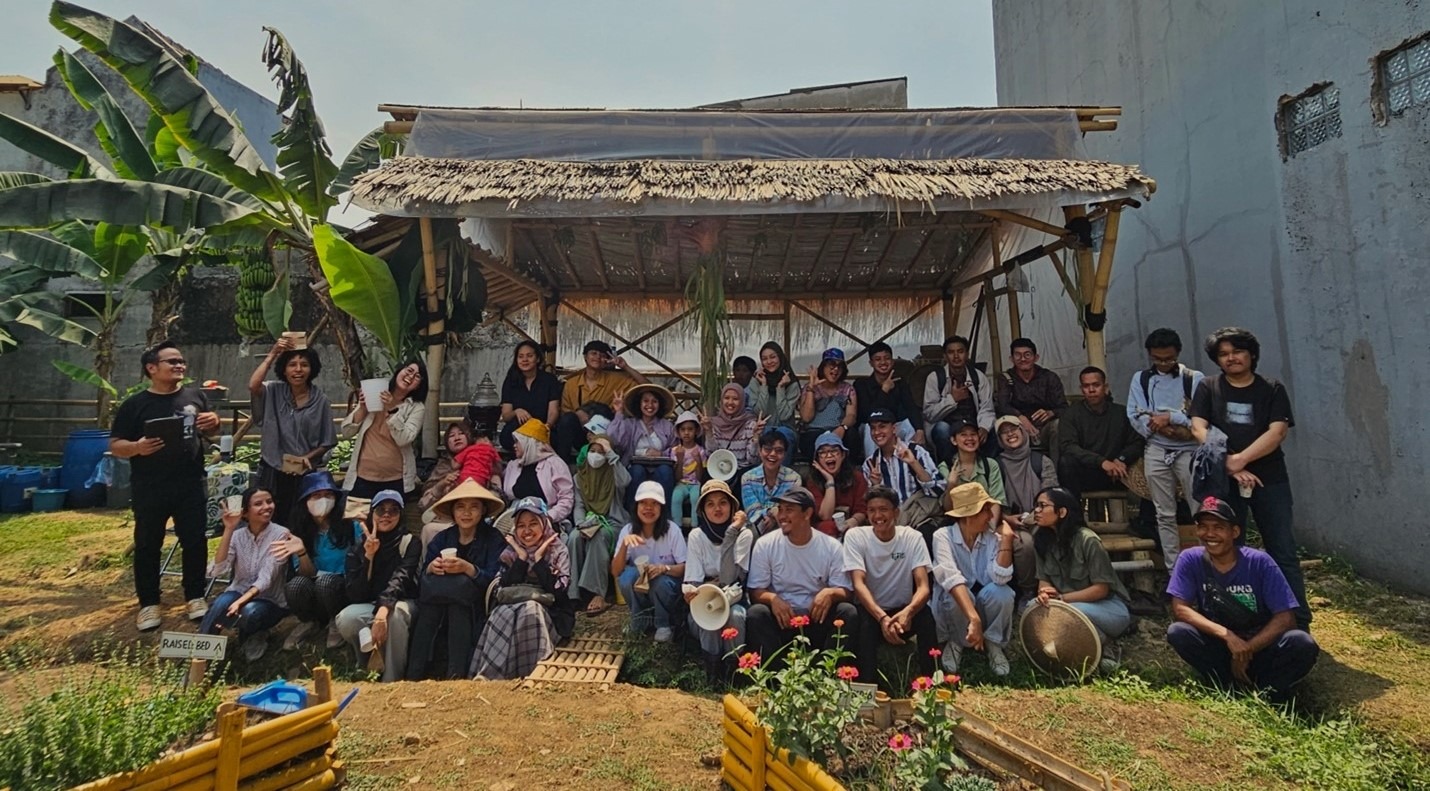From Government Support to Grassroots Action: Exploring the dynamics of local sustainable food initiatives
By Nisrina Nadhifah, Aurellia Putri, Asri Maulana and Karunia Haganta
Since 2022, the Food and Land Use Coalition (FOLU) in Indonesia (formally known in Indonesia as Koalisi Sistem Pangan Lestari) has been running a dynamic youth competition known as Gen-Z for Sustainable Food Systems (GSFS). It aims to raise awareness of food system issues among youth and actively involve them in food systems transformation. The GSFS program encompasses a diverse range of activities, commencing with an essay competition and progressing into an immersive bootcamp experience. The culmination of this journey involves the selection of winners who earn the opportunity to intern with FOLU partners, thereby contributing directly to the ongoing evolution of sustainable food systems in Indonesia.
Yayasan Humanis dan Inovasi Sosial (affiliated with Hivos) is one of the five FOLU partners that collaborated in this year’s GSFS event. The organization was represented by Nisrina Nadhifah and Fadilla Putri, Project Officer and Gender Equality and Social Inclusion (GESI) Specialist on its Fisherfolk Empowerment for Climate Resilience and Sustainability in Central Java (FOCUS) program. They actively contributed as mentors during the bootcamp, and judges and advisors for the essay competition’s first theme “Fisherfolk’s Resilience to Food and Nutrition in the face of Climate Change.”

Komunitas Seni Tani and Buruan Sae Bima Mandiri
During the bootcamp, which was held from the 5th to the 9th September 2023, the participants had the opportunity to explore two distinct urban farming communities in Bandung: Seni Tani and Buruan Sae Bima Mandiri.
Seni Tani emerged from the collaborative efforts of a group of young residents in a housing complex, united by a shared goal to convert unused land around the Overhead Power Line area into a thriving urban farm. Their collective spirit and dedication highlights the power of community-driven initiatives in addressing food and climate challenges.
In contrast, Buruan Sae Bima Mandiri transpired from the shared passion and commitment of retired civil servants residing in a housing complex. Their efforts and ambition underscore the notion that sustainable agriculture knows no bounds, and is something that anyone can partake in, regardless of their age, gender or background.
Komunitas Seni Tani places a strong emphasis on engaging and empowering young individuals who have a vital role to play in shaping the future of Indonesia’s food systems. What sets this community apart is its robust commitment to Community-supported Agriculture (CSA). In essence, CSA transcends the typical ‘transactional’ relationships prevalent in supermarkets or e-commerce platforms, and instead fosters a deeper sense of community and shared responsibility , whereby consumers become stakeholders in the agricultural process. This not only ensures the availability of fresh, locally-sourced produce; it also strengthens the bonds between those who grow our food, and those who consume it.
Seni Tani recognizes that achieving a thriving community is about far more than self-sufficiency; it’s about unlocking collective action and ownership in the local food system, be it from fellow farmers, curious teenagers, or residents in search of sustainable livelihoods.

Power and resources in focus
Discussions concerning community-driven agriculture inevitably intersect with those related to poverty and inequality, and the field visits to Seni Tani and Boruan Sae held a mirror to the power dynamics that continue to shape Indonesia’s food systems. The visions of these communities have been made possible due to a number of socioeconomic advantages and opportunities that are sadly not available for many Indonesians, including access to finance, technical resources, capacity development and knowledge sharing. This was particularly clear in the case of Boruan Sae, which has received considerable support and guidance from the government, and also benefitted from other forms of influence, such as a high presence of retired government officials among its population.
These advantages are not without nuance however, and it was apparent when visiting Boruan Sae that the division of labour within the community inherits many aspects of ‘ibuism’ – a hierarchical structure employed during the New Order era, in which men typically held positions of greater authority than women.
The field visits to Seni Tani and Buruan Sae underscored the need to place social equity and inclusion at the heart of Indonesia’s sustainable food systems journey. While both communities shared a common commitment to promoting sustainability, long-term planning and environmental stewardship, it was evident that each region possesses unique values, sociocultural dynamics and needs. Participants learned first-hand that empowering communities engaged in food security and sustainable agriculture requires not only adequate access to finance and resources, but a context-specific approach that addresses structural challenges, and accounts for the needs of those most affected by them.










